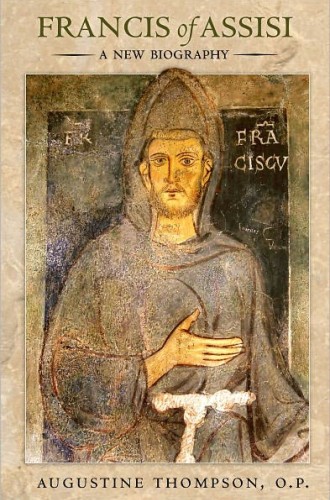Francis of Assisi, by Augustine Thompson
When we think of the hagiography of Francis of Assisi, Qohelet’s wry musing comes to mind: “Of making many books there is no end.”
Not long after Francis died, aspirations, fantasies, power plays and all kinds of spiritualities began to attach themselves to his life. No greater flattery can be imagined than this, and yet the very allure of the saint’s story frustrates our modern impulse to know the real Francis. The average Christian would rank him as the best-known, most important Christian of the entire Middle Ages, and yet scholarly works on things medieval barely give him a mention.
Now we’re getting some help. Critical editions of Francis’s few writings and of the earliest biographies of him have appeared, and level-headed reconstructions of his life are being published. At the top of my list is this volume by Augustine Thompson, who has also published works on Thomism, the Roman emperor Gratian and the culture of medieval Italian communes. He is a Dominican—a member of the Franciscans’ rival order—but no piety bleeds into his work.





